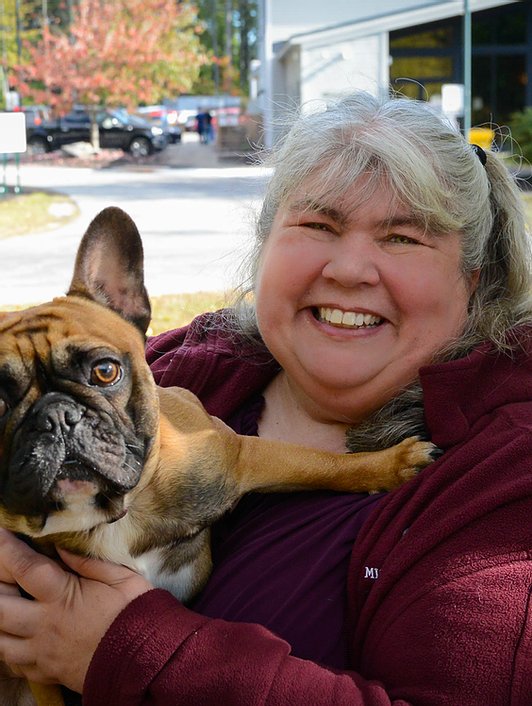Dr. Christine Calder- Behavior
About Christine Calder, DVM, Diplomate ACVB

A graduate of Mississippi State University College of Veterinary Medicine, Dr. Calder has lived and practiced veterinary medicine in both her home state of New Jersey, and Maine for many years.
In addition to general practice, Dr. Calder has worked at the San Francisco SPCA, Auburn University’s College of Veterinary Medicine, and Louisiana State University’s School of Veterinary Medicine. Most recently, she was an Assistant Clinical Professor in Community Veterinary Services and Veterinary Behavior at Mississippi State University’s College of Veterinary Medicine Animal Health Center. As a general practitioner, she has always had an interest in animal behavior especially clinical veterinary behavior and in 2016, she finished a residency with the American College of Veterinary Behaviorists. In 2017, she became a Diplomate with the American College of Veterinary Behaviorists (DACVB). Dr. Calder’s special interest is in shelter behavior, feline behavior, and shy/ fearful dogs.
Presentation Synopsis
1. Vet visit sedation plans
2. Distraction and counterconditioning for vet visits
3. Puppy and Kitten behavior: what's normal and what's NOT
4. Feline housesoiling
5. Noise & storm phobias
6. Separation anxiety
7. How health impacts behavior: Case based Part 1
8. How health impacts behavior: Case based Part 2
9. How to Approach Behavior in General Practice: Getting Started with Observations and Behavioral Histories
10. How to Approach Behavior in General Practice: Is it Medical or Behavioral? Creating your Differential List
11. How to Approach Behavior in General Practice: Developing the Treatment Plan
12. Treating Behavior in Practice: Psychopharmacology
13. Canine Aggression
14. Feline Aggression
15. Veterinary Visits: Managing the more Challenging Patients in Practice?
16. Behavior: It is Everywhere
17. How to Approach Behavior in Practice - Behavior cases don't have to be complicated
18. Medications and the Behavior Patient - Medications are part of the treatment of behavior problems in practice
19. Anxiety in the Canine Patient: Case Studies
20. The Feline Patient: The Litterbox and Beyond
